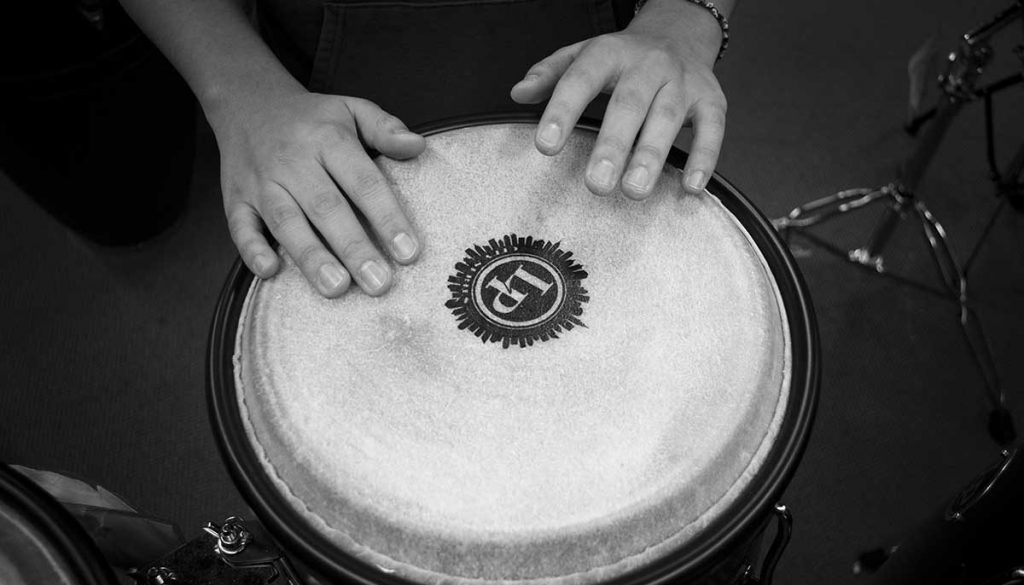Treatment Option: Music Therapy
When people learn that I’m a music therapist, one of the most common assumptions is that I only work with children in schools. But music therapy can be an excellent treatment option for a wide variety of physical and mental health challenges. Below are some highlights of a few common mental and physical health concerns and how music therapy can help.
MUSIC THERAPY TREATMENT FOR CANCER CARE:
- music and imagery can help alleviate distress as a result of outpatient chemo treatments
- music-based activities can improve quality of life measures
- music provides an outlet for self-expression
- community music opportunities enhance socialization and peer support
MUSIC THERAPY FOR DEPRESSION AND ANXIETY:
- Guided Imagery and Music (GIM) can improve mood and reduce levels of cortisol
- music therapy treatment reduces symptoms of depression compared to non-music treatment options
- active music listening and/or playing increases a sense of connection with others
- music can be a healthy coping skill for managing depression and anxiety
MUSIC THERAPY TREATMENT FOR TRAUMA/PTSD:
- music and imagery can be an effective treatment for insomnia
- Guided Imagery and Music (GIM) improves negative emotional processing (in other words, it’s easier to work through the tough stuff)
- music provides an outlet for self-expression
- music can be used as an alternate tool for communication
MUSIC THERAPY FOR CHRONIC PAIN:
- music and imagery improves a sense of well-being in those with chronic pain
- music therapy can help reduce the perception of pain
- music reduces symptoms of depression that often accompany chronic pain
- music can improve motivation for physical movement
These are just some highlights of what music therapy offers. If you have questions about how it might help you specifically, I’m always happy to answer and provide more information!
~Stephanie
Randomized Trial of a Group Music and Imagery Method (GrpMI) for Women with Fibromyalgia. Torres, E., Pedersen, I.N., & Perez-Fernandez, J. Journal of Music Therapy, 55(2), 2018, 186-220.
Effects of GIM Therapy on Mood and Cortisol in Healthy Adults. Cathy H. McKinney; Michael H. Antoni; Mahendra Kumar; Frederick C. Tims; Philip M. McCabe. Health Psychology. 16(4):390–400, July 1997.
Music Therapy for Depression. Maratos AS, Gold C , Wang X , Crawford MJ. The Cochrane Database of Systematic Reviews [23 Jan 2008(1):CD004517].
Differences between Supportive Music and Imagery and Music Listening during Outpatient Chemo and Potential Moderators of Treatment Effects. Burns, D.S., et al. Journal of Music Therapy, 55(1), 2018, 83-108.
The Effect of the Bonny Method of Guided Imagery and Music on the Mood and Life Quality of Cancer Patients. Burns, D.S. Journal of Music Therapy, 38(1), 2001, 51-65.
The effects of music relaxation and muscle relaxation techniques on sleep quality and emotional measures among individuals with post-traumatic stress disorder. Monica Blanaru, Boaz Bloch, Limor Vadas, Zahi Arnon, Naomi Ziv, Ilana Kremer, and Iris Haimov. Ment Illn. 2012 Jul 26; 4(2): e13.





